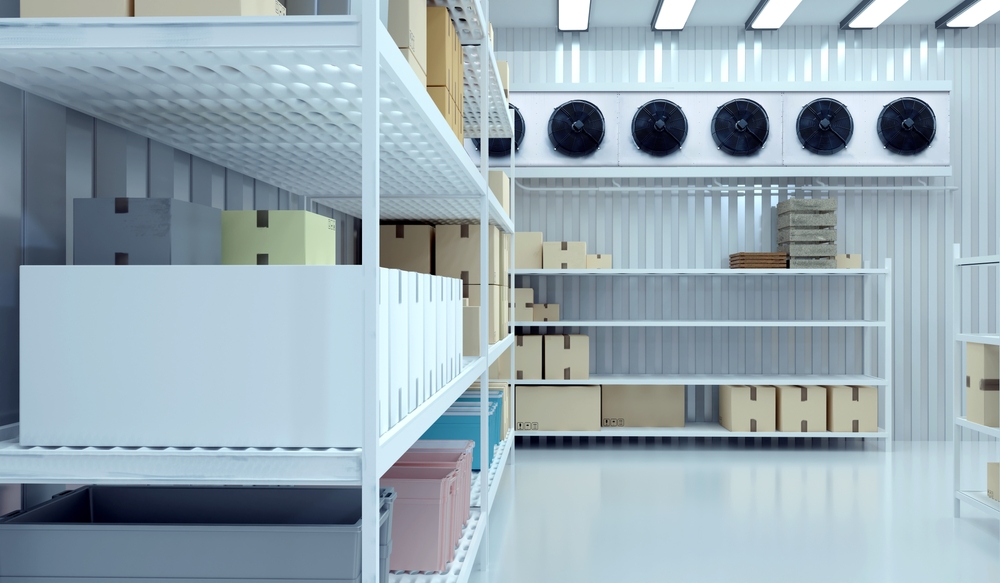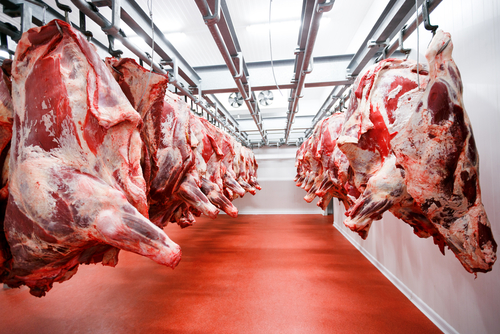The Future of Cold Storage: Innovations Transforming the Refrigeration Industry

Refrigeration and cold storage are the cornerstones of modern food preservation, pharmaceutical storage, and even some industrial processes. Innovations in refrigeration have transformed the way businesses manage perishable goods, ensuring longer shelf life and improved safety. As we look to the future, advancements in technology, energy efficiency, and automation are driving a new era of innovation in refrigeration. From smart cooling systems to eco-friendly solutions, the cold storage industry is on the brink of a revolution.
In this blog, we’ll delve into the most significant innovations in refrigeration, highlighting how they are transforming cold storage solutions, including those in Eugene, OR. Let’s explore the trends shaping the future of cold storage.
The Growing Demand for Cold Storage Solutions
The global cold storage market is experiencing rapid growth, driven by increased consumer demand for fresh produce, frozen foods, and temperature-sensitive pharmaceuticals. The rise of e-commerce, especially in grocery delivery services, has further fueled this demand. As the food and pharmaceutical industries continue to expand, the need for advanced cold storage solutions has never been more critical.
In Eugene, OR, cold storage solutions have become essential for local food producers, distributors, and retailers. The demand for efficient and sustainable refrigeration systems that cater to both large-scale facilities and smaller operations is on the rise. With the ongoing focus on food safety and reducing waste, innovations in refrigeration are essential to meeting these challenges head-on.
Emerging Trends in Cold Storage Technology
Energy Efficiency and Sustainability
One of the most pressing concerns in the refrigeration industry is energy consumption. Traditional refrigeration systems are notorious for being energy-intensive, leading to high operational costs and environmental concerns. To address these issues, the industry is focusing on innovations in energy efficiency and sustainability.
Energy-efficient compressors and cooling technologies are becoming more prevalent, reducing energy consumption by optimizing the cooling process. Additionally, the use of natural refrigerants like ammonia and CO2 is gaining traction as these options offer lower global warming potential (GWP) compared to synthetic refrigerants like hydrofluorocarbons (HFCs). By adopting these eco-friendly technologies, businesses can not only reduce their energy bills but also contribute to global sustainability efforts.
Smart Refrigeration Systems
The integration of smart technologies into refrigeration systems is another key trend shaping the future of cold storage. Smart refrigeration systems utilize sensors, IoT (Internet of Things) devices, and automation to optimize performance, improve energy efficiency, and reduce waste. These systems can monitor temperature, humidity, and other critical factors in real-time, making it easier for operators to ensure that their cold storage solutions are functioning at optimal levels.
In Eugene, OR cold storage solutions, smart refrigeration systems are gaining popularity, especially among businesses that require precise temperature control for perishable goods. These systems allow for remote monitoring and control, reducing the risk of spoilage and ensuring product quality throughout the supply chain.
Innovations in Refrigeration Design and Materials
Advanced Insulation Technologies
One of the most critical aspects of cold storage is maintaining consistent temperatures to prevent spoilage. Innovations in insulation materials and design are helping cold storage facilities improve thermal efficiency, reduce energy loss, and maintain stable temperatures. Vacuum insulated panels (VIPs), for example, offer superior insulation compared to traditional materials, making them ideal for cold storage applications.
These advanced insulation technologies are being used in both large-scale refrigeration systems and portable cold storage units, ensuring that products remain at the desired temperature even during transportation or power outages. In Eugene, OR, where local food producers rely on cold storage solutions to deliver fresh produce to market, these innovations are proving invaluable.
Modular and Portable Cold Storage Solutions
The need for flexible and scalable cold storage solutions is growing, particularly in industries where space and mobility are concerns. Modular and portable cold storage units offer a solution by allowing businesses to customize their refrigeration systems based on their specific needs. These units can be easily expanded, relocated, or reconfigured to accommodate changing requirements.
For businesses in Eugene, OR, cold storage solutions that offer flexibility and adaptability are crucial. Whether it’s a small-scale food producer needing temporary storage or a larger operation looking to expand capacity, modular refrigeration systems provide an efficient and cost-effective solution.
Automation and AI in Cold Storage Management
Automated Warehouses
Automation is revolutionizing the way cold storage facilities operate. Automated warehouses utilize robotics and automated storage and retrieval systems (AS/RS) to handle products with minimal human intervention. These systems can quickly and accurately move goods in and out of storage, reducing labor costs and improving efficiency.
Automated cold storage facilities are particularly beneficial for businesses handling large volumes of perishable goods. With the ability to operate 24/7, these systems can significantly reduce operational costs and improve turnaround times. In Eugene, OR, cold storage solutions that incorporate automation are helping businesses streamline their operations and meet the demands of a growing market.
AI-Powered Predictive Maintenance
Artificial intelligence (AI) is playing an increasingly important role in cold storage management. One of the most promising applications of AI is predictive maintenance, which uses machine learning algorithms to analyze data from refrigeration systems and predict when maintenance is needed. This helps prevent costly breakdowns and extends the lifespan of equipment.
By identifying potential issues before they become critical, AI-powered predictive maintenance can reduce downtime and repair costs. For businesses in Eugene, OR, cold storage solutions that incorporate AI are proving to be a game-changer, ensuring that refrigeration systems operate smoothly and efficiently at all times.
The Role of IoT in Transforming Cold Storage
Real-time Monitoring and Analytics
The Internet of Things (IoT) is transforming the cold storage industry by enabling real-time monitoring and analytics. IoT devices can collect and transmit data on temperature, humidity, and other environmental factors, allowing operators to monitor their refrigeration systems remotely. This data can be analyzed to identify trends, optimize performance, and detect potential issues before they become problems.
Real-time monitoring is particularly valuable for businesses in the food and pharmaceutical industries, where maintaining precise temperature control is critical. In Eugene, OR, cold storage solutions that leverage IoT technology are helping businesses ensure that their products remain safe and compliant with industry regulations.
Integration with Supply Chain Systems
IoT is also enabling greater integration between cold storage and supply chain systems. By connecting refrigeration units with logistics and inventory management platforms, businesses can gain better visibility into their supply chains and make more informed decisions. This level of integration allows for better tracking of products, reduces the risk of spoilage, and improves overall efficiency.
For businesses in Eugene, OR, cold storage solutions that integrate with supply chain systems offer a competitive edge, allowing them to respond more quickly to market demands and ensure that their products are delivered fresh and on time.
Sustainable Practices in Cold Storage and Refrigeration
Renewable Energy Sources
As the world shifts towards more sustainable practices, the cold storage industry is also adopting renewable energy sources to power refrigeration systems. Solar panels, wind turbines, and geothermal energy are increasingly being used to offset the energy demands of cold storage facilities. By harnessing these renewable energy sources, businesses can reduce their reliance on fossil fuels and lower their carbon footprint.
In Eugene, OR, cold storage solutions that incorporate renewable energy are becoming more common as businesses look to reduce their environmental impact. By investing in these technologies, companies can not only save on energy costs but also enhance their sustainability credentials.
Reducing the Carbon Footprint
In addition to adopting renewable energy sources, the cold storage industry is also focused on reducing its overall carbon footprint. Innovations in refrigeration design, energy-efficient technologies, and eco-friendly refrigerants are all contributing to this effort. By optimizing the entire cold storage process, from energy consumption to waste management, businesses can significantly reduce their environmental impact.
For businesses in Eugene, OR, cold storage solutions that prioritize sustainability are becoming a key differentiator in the market. As consumers become more environmentally conscious, companies that embrace green practices will be better positioned to meet the growing demand for sustainable products and services.
Conclusion
The future of cold storage is being shaped by rapid technological advancements and a growing emphasis on sustainability. Innovations in refrigeration, such as energy-efficient technologies, smart systems, and AI-powered automation, are transforming the industry and helping businesses meet the challenges of an increasingly competitive market.
For businesses in Eugene, OR, cold storage solutions that incorporate these innovations are not just a luxury—they are a necessity. As the demand for fresh, perishable goods continues to rise, businesses must invest in advanced refrigeration technologies to ensure the safety, quality, and sustainability of their products.
Need Commercial Refrigeration, Heating and Cooling in Eugene, OR?
Call American Refrigeration for all your commercial heating, ventilation & cooling needs! Founded in 1995, American Refrigeration has been proudly serving the Eugene & Portland areas with honesty & integrity for over 19 years. We specialize in commercial HVAC, air conditioning & heating repair, including medical laboratories and winery chillers. Emergency Repair is available 24/7 and we honor manufacturer rebates & warranties. Contact us today!

